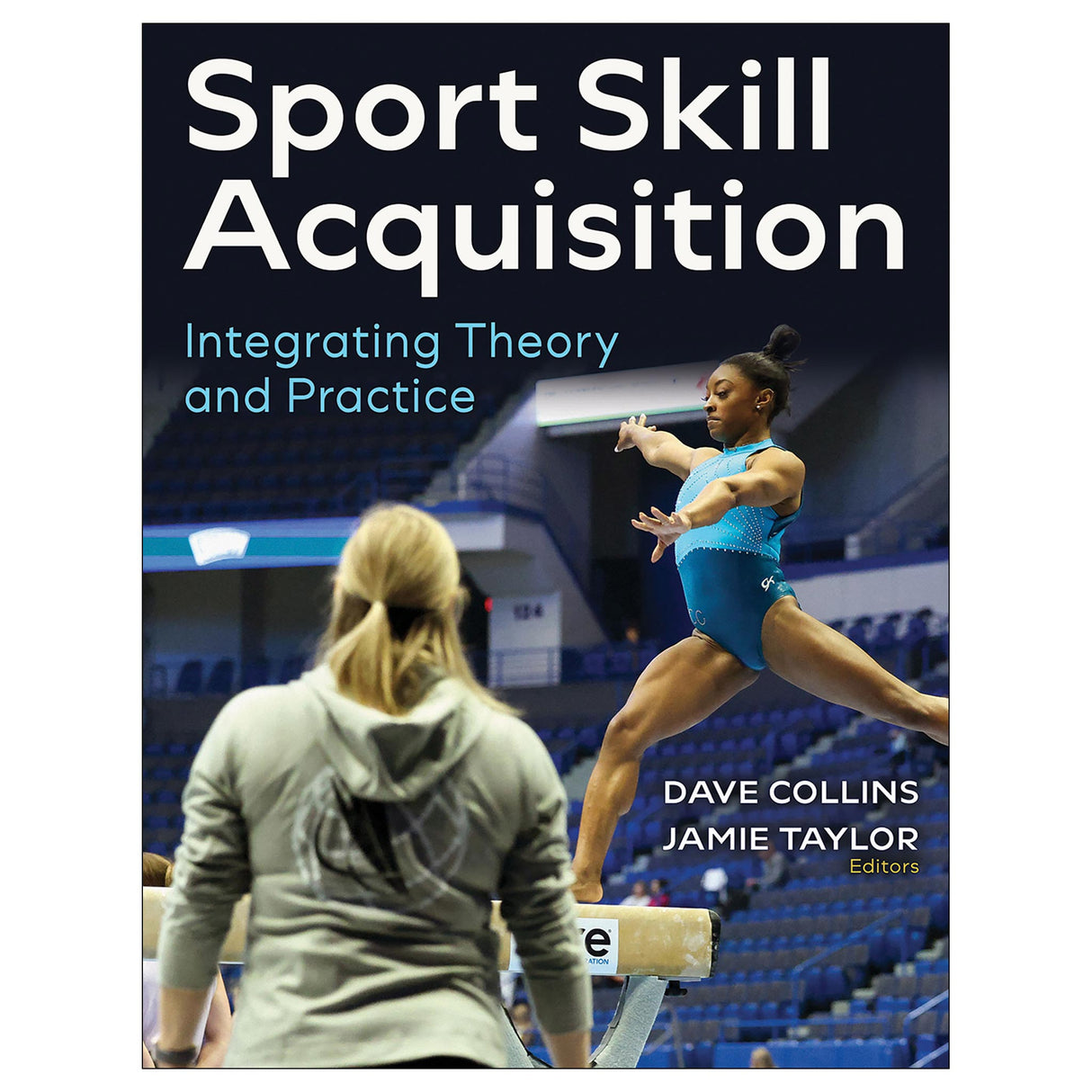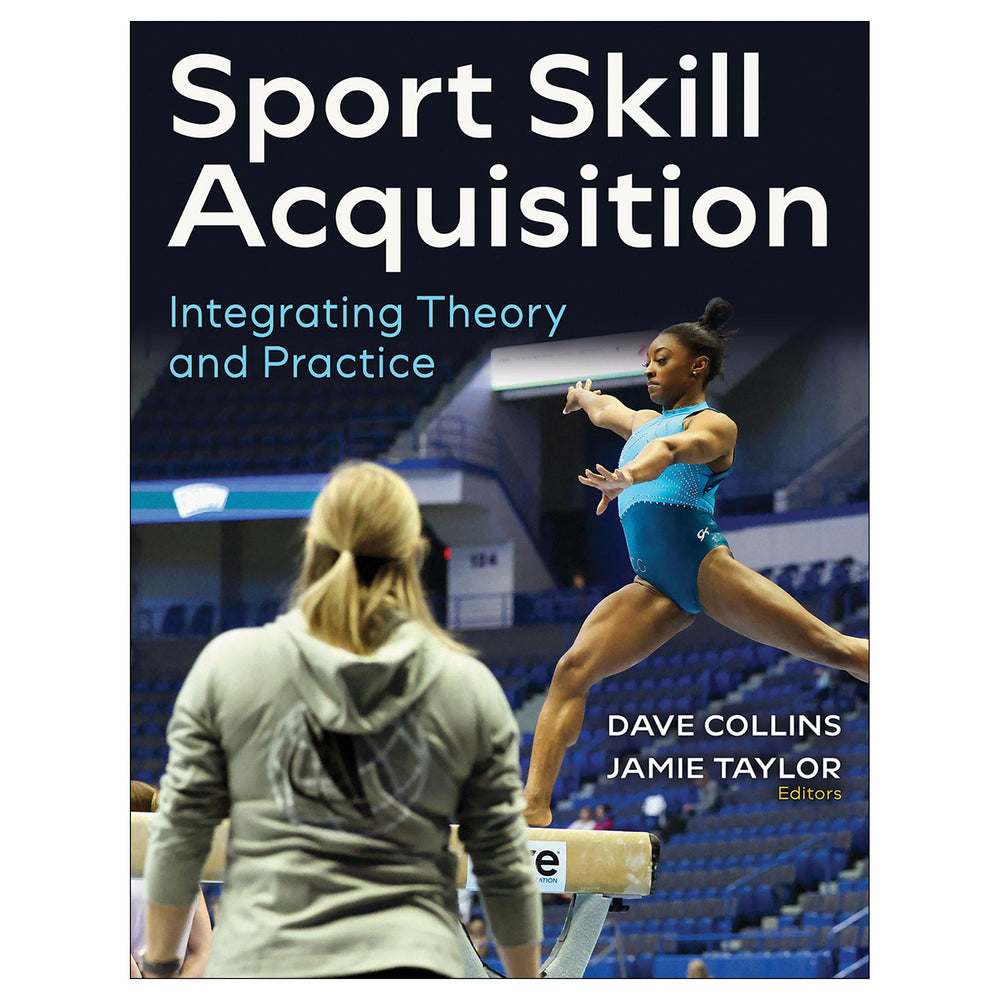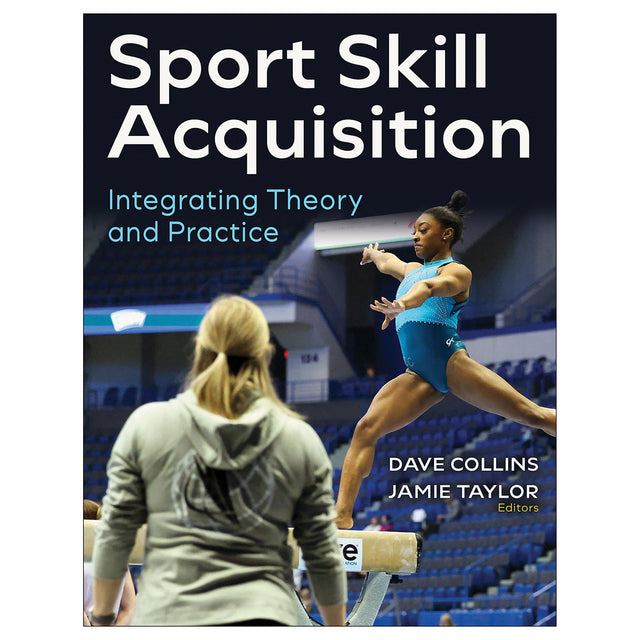Sport Skill Acquisition
Integrating Theory and Practice
Author: Dave Collins, Jamie Taylor
$99.00 USD
Students and practitioners across a variety of professions based on the development and refinement of effective movement—including coaches, sport scientists, physical educators, physical therapists, and trainers—will appreciate the applied focus of Sport Skill Acquisition. The text champions the connection of research to direct application using a practice termed professional judgment and decision making (PJDM), or the it depends approach, which stresses the need to carefully consider and apply the best strategy for each particular context.
Organized into four parts, Sport Skill Acquisition begins by considering the three theoretical approaches to skill acquisition. It goes on to explore how these different approaches can be used separately or in a blended form, before considering the wider ramifications of an integrated approach. Then the mental, organizational, planning, and social aspects of skill are discussed, along with practical guidance on how skill can best be planned for, developed, executed, and integrated.
Throughout the book, learning features guide readers through the content. Chapter objectives direct readers on their learning path and ensure they focus on key concepts, while chapter summaries offer a concise wrap-up of the material presented. Review questions and key terms support understanding and knowledge. Case studies and practical questions offer real-life situations that support critical thinking.
For those looking to improve their work with performers, Sport Skill Acquisition provides a road map for choosing the best approach for each unique situation to develop skills for optimal sport performance.
Audience
Undergraduate students taking courses in skill acquisition, motor learning, coaching, or sport science; reference for movement-based practitioners, including coaches and physical education teachers.Dave Collins
Part I. Controlling Movement
Chapter 1. Underpinning Theories and Consequent Approaches: What Do We Want and Need From a Model?
Dave Collins and Jamie Taylor
Chapter 2. Challenges of Cognitive, Ecological, and Predictive Processing Approaches
Howie J. Carson and Jamie Taylor
Chapter 3. Sifting the Useful From the Useless: A Case for Criticality in Coaching
Loel Collins and Ray Bobrownicki
Part II. Learning Movement
Chapter 4. An Either-Or Perspective on Applying the Theoretical Approaches: Where Have They Come From, and How Valid Are They?
Howie J. Carson
Chapter 5. Blending Approaches
Michael Ashford and Jamie Taylor
Chapter 6. Performer Experience: Challenge and Fidelity
Jamie Taylor and Michael Ashford
Chapter 7. The Special Case of High-Level and Experienced Performers
Dave Collins
Part III. Performing Movement
Chapter 8. Mental Skills
Rosie Collins
Chapter 9. Athlete Management
Andrew Cruickshank
Chapter 10. Planning and Leadership Systems
Michael Ashford and Dave Collins
Part IV. Team Movement
Chapter 11. Psychosocial Dimensions: Integrating Movement and Psychological Considerations to Optimize Team Performance
Urvi Khasnis and Amy Price
Chapter 12. Team Management
Andrew Cruickshank
Epilogue. Underpinning Your Future Development: Next Steps, How to Take Them, and What to Look Out For
Jamie Taylor and Dave Collins
Jamie Taylor, PhD, earned a doctorate in psychology from the University of Edinburgh in 2020. He is currently an assistant professor and lecturer in coaching and elite performance at Dublin City University. As a senior coach developer at Grey Matters UK, Taylor offers ongoing contributions to the development of coaches and coach supporters in athletics, netball, rugby union, football, adventure sports, and the Special Olympics. He has worked with over 150 coaches in a developmental capacity and consulted across a wide range of sports and contexts, including Olympic and Paralympic programs. While working with the English Institute of Sport, Taylor supported the creation of the Coach Developer CIMSPA standards. His research focus spans across performance enhancement in sport, specifically in coaching, coach development, high performance, and talent development.
How coaches shape value through team or squad identity
Professional Judgment and Decision Making (PJDM) in coaching: The “It Depends” approach
All ancillaries are free to adopting instructors through HKPropel.
Instructor guide. Includes answers to practical questions that are featured in the text, plus chapter objectives and chapter summaries. Additional instructor tools include these:
- Lecture aids: ideas for lecture topics, sample lecture outlines, and condensed lecture notes
- Activities: ideas for assignments, lab activities, and class projects
- Topics: ideas for paper or essay topics
Test package. Contains over 200 questions in true-false, fill-in-the-blank, essay and short-answer, and multiple-choice formats. The files may be downloaded for integration with a learning management system or printed for use as paper-based tests. Instructors may also create their own customized quizzes or tests from the test bank questions.
Presentation package. Features more than 200 PowerPoint slides of text, artwork, and tables from the book that can be used for class discussion and presentation. The slides in the presentation package can be used directly within PowerPoint or printed to make handouts for students. Instructors can easily add, modify, and rearrange the order of the slides.





